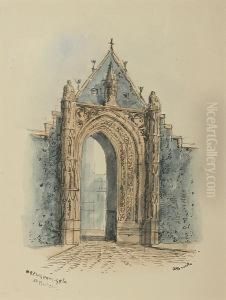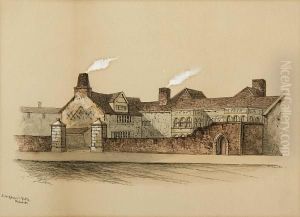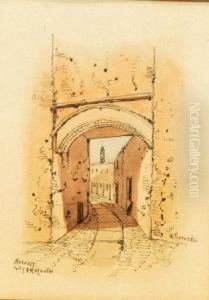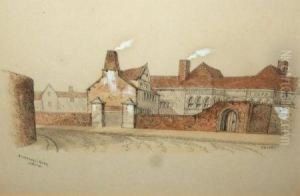Edward Pococke Paintings
Edward Pococke was a pioneering English Orientalist and biblical scholar, born in 1604 in Oxford, England. His academic journey began at Corpus Christi College, Oxford, where he developed a keen interest in languages, particularly those of the Middle East. Pococke's proficiency in languages, including Hebrew, Syriac, and Arabic, set the stage for his future contributions to Oriental studies and biblical scholarship.
In 1630, Pococke's academic pursuits led him to Aleppo, Syria, as the chaplain to the English factory. During his time in the Middle East, he amassed a significant collection of Arabic manuscripts, which later became invaluable to European scholars. His stay in the region provided him with profound insights into Islamic culture and religion, further enriching his understanding and scholarly work.
Upon his return to England in 1636, Pococke was appointed the first Laudian Professor of Arabic at Oxford University, a position he held until his death. His tenure at Oxford was marked by his efforts to promote the study of Oriental languages and cultures. Pococke's significant contributions include his translation and commentary on various Arabic works, including a notable translation of the 'Specimen Historiae Arabum' by Bar Hebraeus, which provided European scholars with an accessible overview of Arabic history and culture.
Apart from his Oriental studies, Pococke made substantial contributions to biblical scholarship. He was deeply involved in the collation of manuscripts for Brian Walton's Polyglot Bible, a monumental work that sought to compile the biblical texts in their original languages.
Edward Pococke's legacy is that of a scholar who bridged the gap between East and West through his profound understanding and appreciation of Oriental languages and cultures. His work laid the foundation for future Orientalists and contributed significantly to the academic study of the Middle East. Pococke passed away in 1691, leaving behind a legacy of scholarship that continues to inspire and inform.












